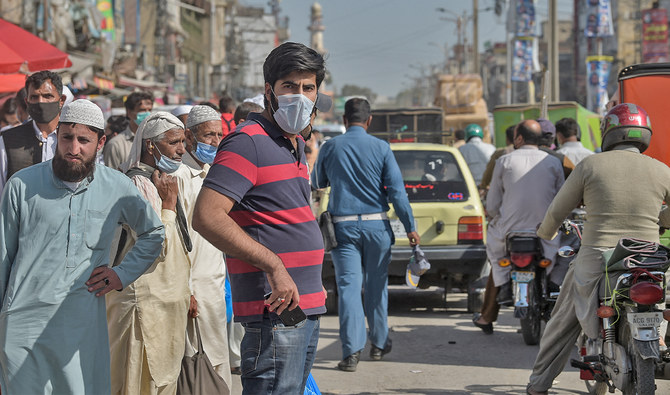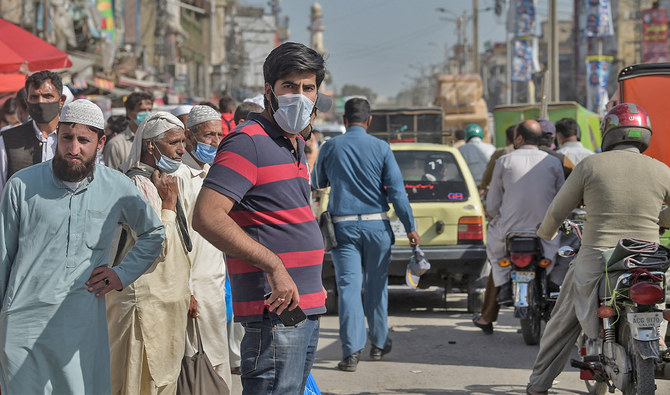ISLAMABAD: Pakistan has considerable control over infectious diseases but now struggles against cardiovascular diseases, diabetes, and cancer as causes of early deaths, according to a new study published Thursday.
The Lancet Global Health, a prestigious British-based medical journal, reported that five non-communicable diseases — ischaemic heart disease, stroke, congenital defects, cirrhosis, and chronic kidney disease — were among the 10 leading causes of early deaths in the impoverished Islamic nation.
However, the journal said some of Pakistan’s work has resulted in an increase in life expectancy from 61.1 years to 65.9 over the past three decades.
The change is due, it said, “to the reduction in communicable, maternal, neonatal, and nutritional diseases.” That’s still 7.6 years lower than the global average life expectancy, which increased over 30 years by 8 percent in women and 7 percent in men.
The study says “despite periods of political and economic turbulence since 1990, Pakistan has made positive strides in improving overall health outcomes at the population level and continues to seek innovative solutions to challenging health and health policy problems.”
The study, which was based on Pakistan’s health data from 1990 to 2019, has warned that non-communicable diseases will be the leading causes of death in Pakistan by 2040.
It said Pakistan will also continue to face infectious diseases.
“Pakistan urgently needs a single national nutrition policy, especially as climate change and the increased severity of drought, flood, and pestilence threatens food security,” said Dr. Zainab Samad, Professor and Chair of the Department of Medicine at Aga Khan University, one of the authors of the report.
“What these findings tell us is that Pakistan’s baseline before being hit by extreme flooding was already at some of the lowest levels around the globe,” said Dr. Ali Mokdad, Professor of Health Metrics Sciences at IHME. “Pakistan is in critical need of a more equitable investment in its health system and policy interventions to save lives and improve people’s health.”
The study said with a population approaching 225 million, “Pakistan is prone to the calamitous effects of climate change and natural disasters, including the 2005 Kashmir earthquake and catastrophic floods in 2010 and 2022, all of which have impacted major health policies and reform.”
It said the country’s major health challenges were compounded by the ongoing COVID-19 pandemic and last summer’s devastating flooding that killed 1,739 people and affected 33 million.
Researchers ask Pakistan to “address the burden of infectious disease and curb rising rates of non-communicable diseases.” Such priorities, they wrote, will help Pakistan move toward universal health coverage.”
The journal, considered one of the most prestigious scientific publications in the world, reported on Pakistan’s fragile health care system with the Institute for Health Metrics and Evaluation at the University of Washington’s School of Medicine. The study was a collaboration with a Karachi-based prestigious Aga Khan University and Pakistan’s health ministry.
The study also mentioned increasing pollution as one of the leading contributors to the overall disease burden in recent years. Pakistan’s cultural capital of Lahore was in the grip of smog on Thursday, causing respiratory diseases and infection in the eyes. Usually in winter, a thick cloud of smog envelops Lahore, which in 2021 earned it the title of the world’s most polluted city.


















